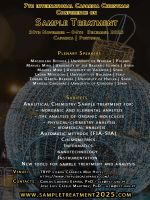The importance of a specific medical-legal training for health care professionals in the management of sexual assault victims
DOI: 10.5584/jiomics.v10i2.335
Abstract
The World International Organization (WHO) defines sexual violence as “any sexual act, attempt to obtain a sexual act, unwanted sexual comments or advances, or acts to traffic, or otherwise directed, against a person’s sexuality using coercion, by any person regardless of their relationship to the victim, in any setting, including but not limited to home and work”. This definition includes a very wide range of behaviors. According to the Italian National Statistical Institute (ISTAT), the 31.5% of Italian women are estimated to have been victims of physical or sexual violence during their lifetime. Given the acute nature of sexual assault, emergency medicine providers are the first clinicians to take care of the victim, and care of such patients differs from care of those presenting other kind of trauma and injuries. Healthcare professionals treating victims of sexual assault admitted to Emergency Departments (ED) need to deal not only with clinical priorities, but also with the emotional suffering and anguish characterizing the experience of this type of patients. Furthermore, they can effectively assist the victims in their medical-legal proceedings by documenting injuries and by collecting biological evidence for forensic purposes. In order to avoid discrepancies between the medical report and the reconstruction of the event, it is essential to set up strategies which focus on the technical aspect of evidence collection and on the way the victim’s story shall be recorded. Sometimes, indeed, informations collected from the victim in the ED are still inadequate or incomplete to determine how the case event should be reconstructed. Such efforts could lead to a better management of sexual assault victims and to a strengthened legal impact of forensic evidences and of the crime reconstruction. For this reason, it is necessary for health structures: to define specific pathways for the victim’s management; to adopt homogeneous operational protocols which allow a standardization in the methods of collection and preservation of biological material for forensic-genetic analyses; finally, to provide an adequate forensic training for health personnel in order to ensure that they are competent in the medical reporting and in documenting evidences of the sexual assault. From a forensic point of view this could be crucial, as medical documentation may be used in court.









